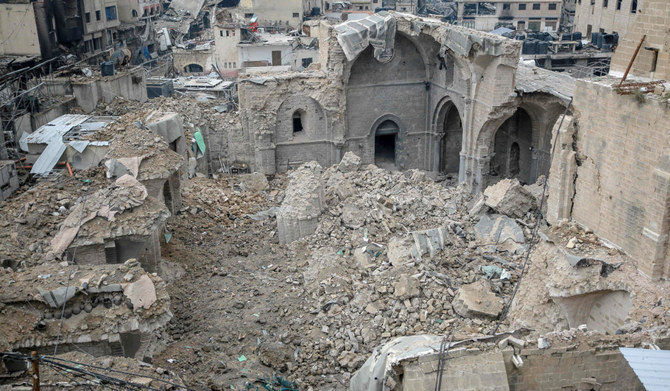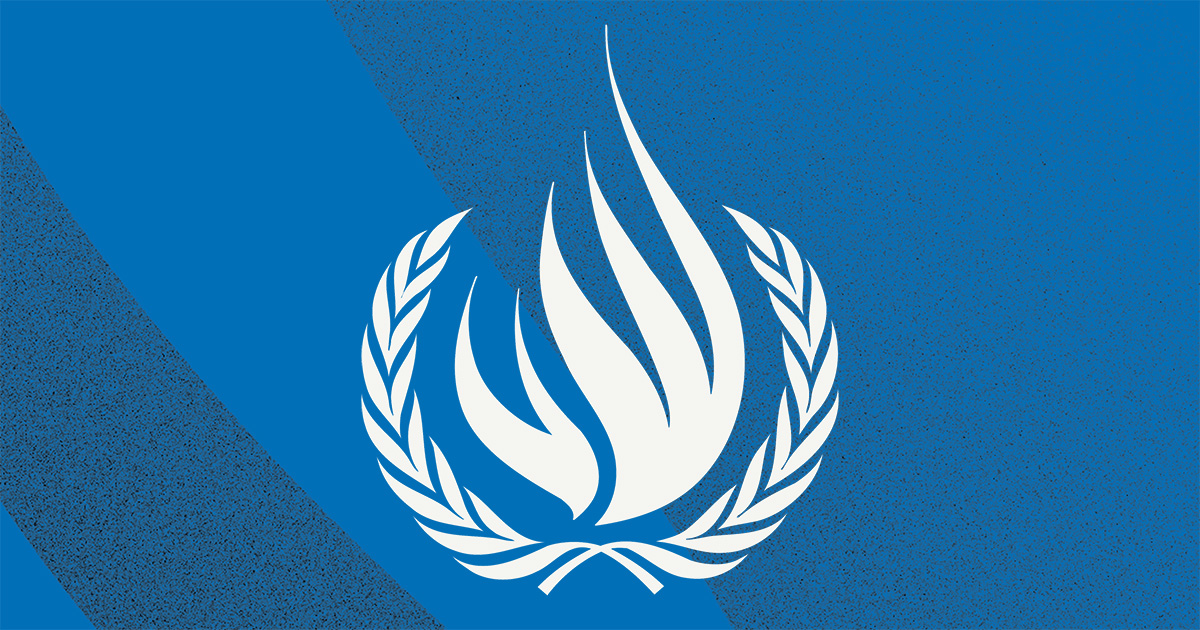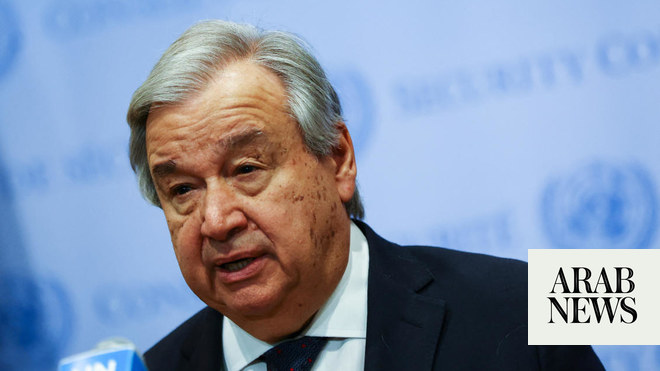
Updated 11 April 2019
AFP
April 11, 2019
13:05
420
TRIPOLI: The UN chief warned Libya is on the brink of “a very dangerous situation” as forces loyal to the internationally recognized government and a rival strongman battle for control of the capital.
Thousands of people have fled heavy fighting on the outskirts of Tripoli that has left dozens dead and prompted mounting global alarm.
UN chief Antonio Guterres on Wednesday appealed for a halt to hostilities to prevent the situation spiralling out of control.
“It’s still time to stop,” he told reporters after briefing the UN Security Council in a closed session in New York.
“It’s still time for a cease-fire to take place, for a cessation of hostilities to take place, and to avoid the worst, which would be a dramatic, bloody battle for Tripoli.”
Nearly a week of fighting on the city’s doorstep has already killed 56 people and wounded 266, the World Health Organization said.
“Thousands of people have fled their homes, while others are trapped in conflict areas. Hospitals inside and outside (Tripoli) are receiving daily casualties,” it said.
The UN chief was in Libya when forces loyal to military strongman Khalifa Hafta last week launched an offensive to capture the capital, which is controlled by a UN-backed government and an array of militias.
Haftar backs a rival administration based in eastern Libya that refuses to recognize the authority of the Government of National Accord (GNA) led by Fayez Al-Sarraj.
Guterres said Libya was facing a “very dangerous situation” and urged a halt to the fighting to allow political negotiations to start anew.
“It is very clear for me that we need to restart a serious political dialogue and a serious political negotiation but it is obvious that cannot take place without a full stop to the hostilities,” he said.
The council met for more than two hours behind closed doors to consider how to address the fresh fighting that has derailed efforts to end instability that has been exploited by jihadists and people-smugglers.
The United Nations postponed a national conference that was to open on Sunday to draw up a roadmap to elections, meant to turn the page on years of turmoil since the NATO-backed overthrow of dictator Muammar Qaddafi in 2011.
Heavy clashes shook Ain Zara, a town dotted with farms on the southeastern outskirts of Tripoli where pro-GNA fighters managed to reverse an advance by Haftar’s forces.
On the town’s main street, lined with shops and houses, a sand barrier erected by pro-GNA forces separated the two camps.
“Today, the criminals of Haftar’s group have advanced, but we destroyed a tank and two armored vehicles,” said a pro-GNA fighter who gave his name as Youssef.
“The situation is good now,” he said.
Behind him, artillery fire stirred up a cloud of sand as the sound of machine guns and anti-aircraft guns rang out.
Suddenly a shell sliced through the air and hit a nearby house.
“You see, he (Haftar) wants to destroy our houses and all of Tripoli,” one of the fighters shouted.
Haftar’s self-styled Libyan National Army (LNA), which controls swathes of the country’s east, said on Wednesday it had seized a barracks in the Aziziya area around 50 kilometers (31 miles) south of Tripoli after “ferocious clashes.”
It said several fighters loyal to the UN-backed government had been detained and their weapons seized.
“For the moment, it’s still a game of cat and mouse,” said a commander from a pro-GNA group.
“We’re still organizing ourselves. The war hasn’t truly started,” he told AFP in Ain Zara.
Heavy arms fire was heard from the front line about 10 kilometers (six miles) away where the city’s disused international airport has changed hands several times over the past week.
Haftar’s forces appear to be advancing on two fronts, from the south and southeast of Tripoli, while coast roads to the east and west of the city are defended by fighters loyal to the GNA.
The strongman, whose key allies are the United Arab Emirates, Egypt, Saudi Arabia and Russia, is a former Qaddafi military chief who has emerged as a major player in Libya’s political struggle.
NATO chief Jens Stoltenberg said the alliance was “deeply concerned by the situation in Libya.”
“The current military operation and advance on Tripoli are increasing the suffering of the Libyan people and putting civilian lives at risk,” he said.
The UN children’s agency (UNICEF) said “nearly half a million children in Tripoli and tens of thousands more in the western areas are at a direct risk due to the intensification of fighting.”
Although casualties remain limited so far, the International Crisis Group warned further escalation “could precipitate a humanitarian disaster.”
“If unleashed, a full-fledged offensive could become a proxy war between regional powers and cause innumerable casualties as well as immense devastation,” it said.












